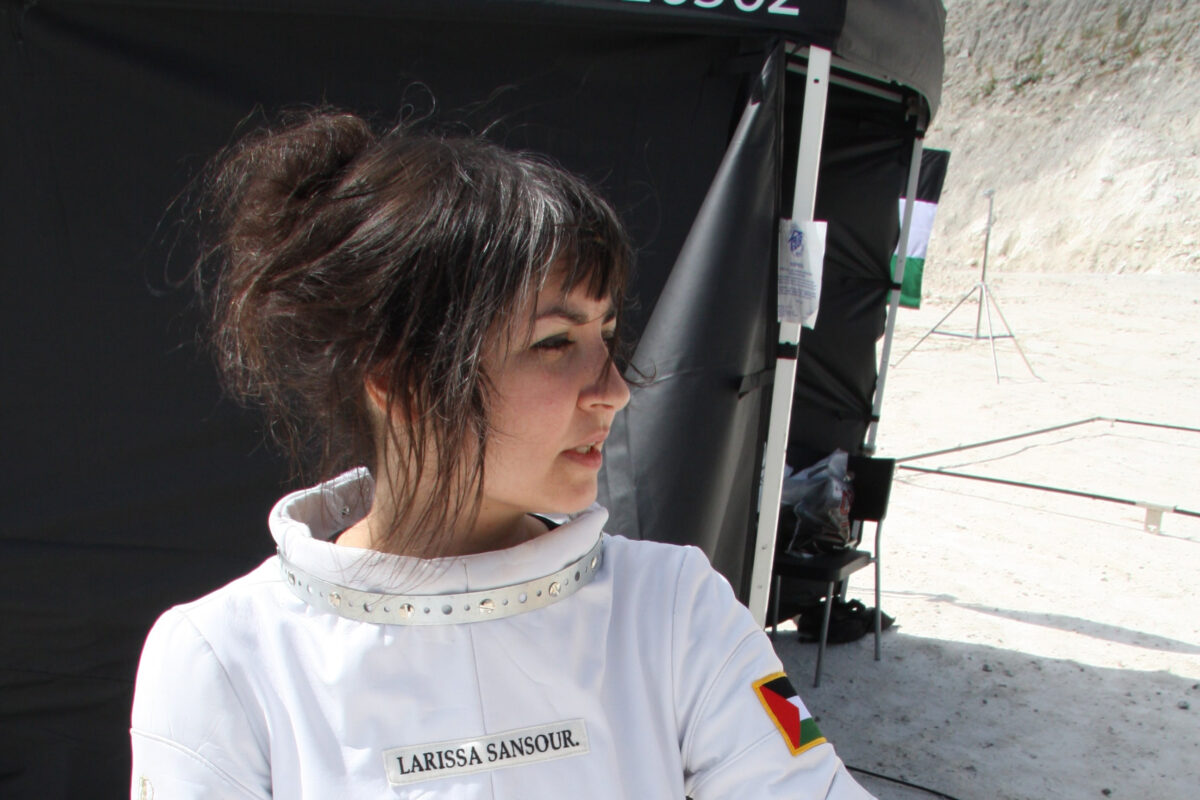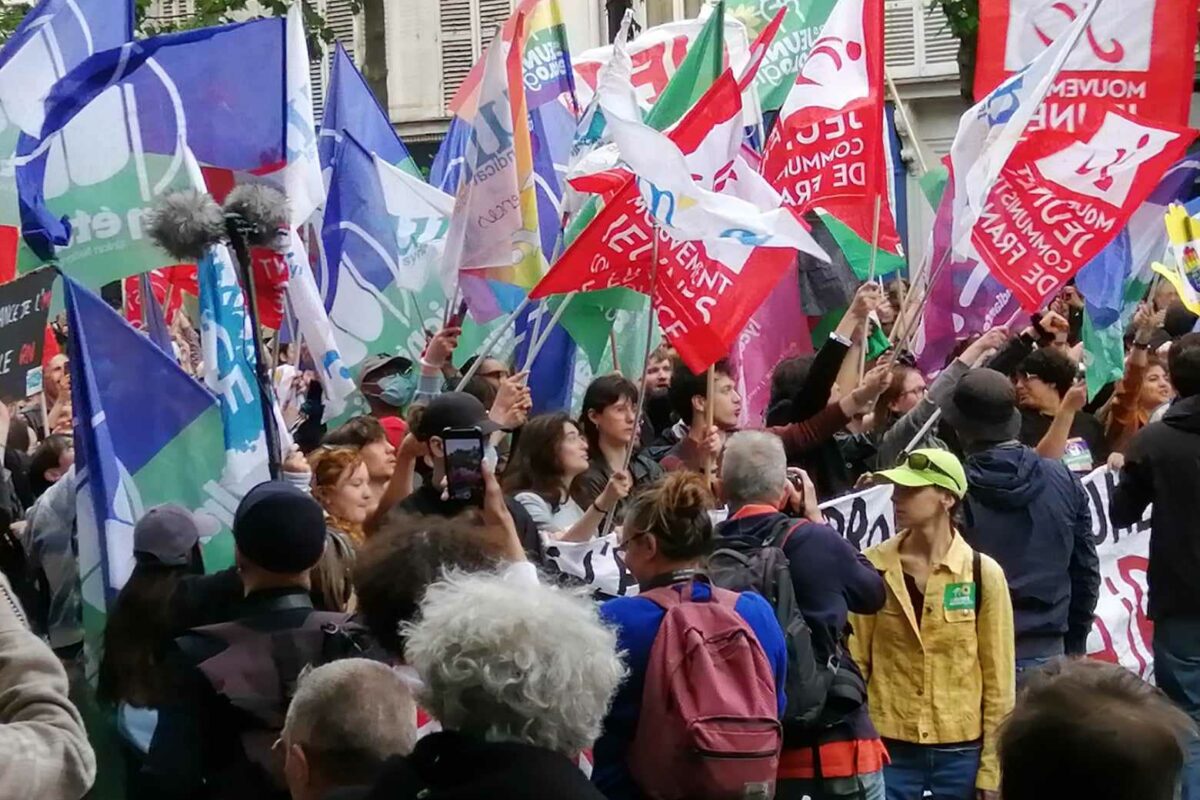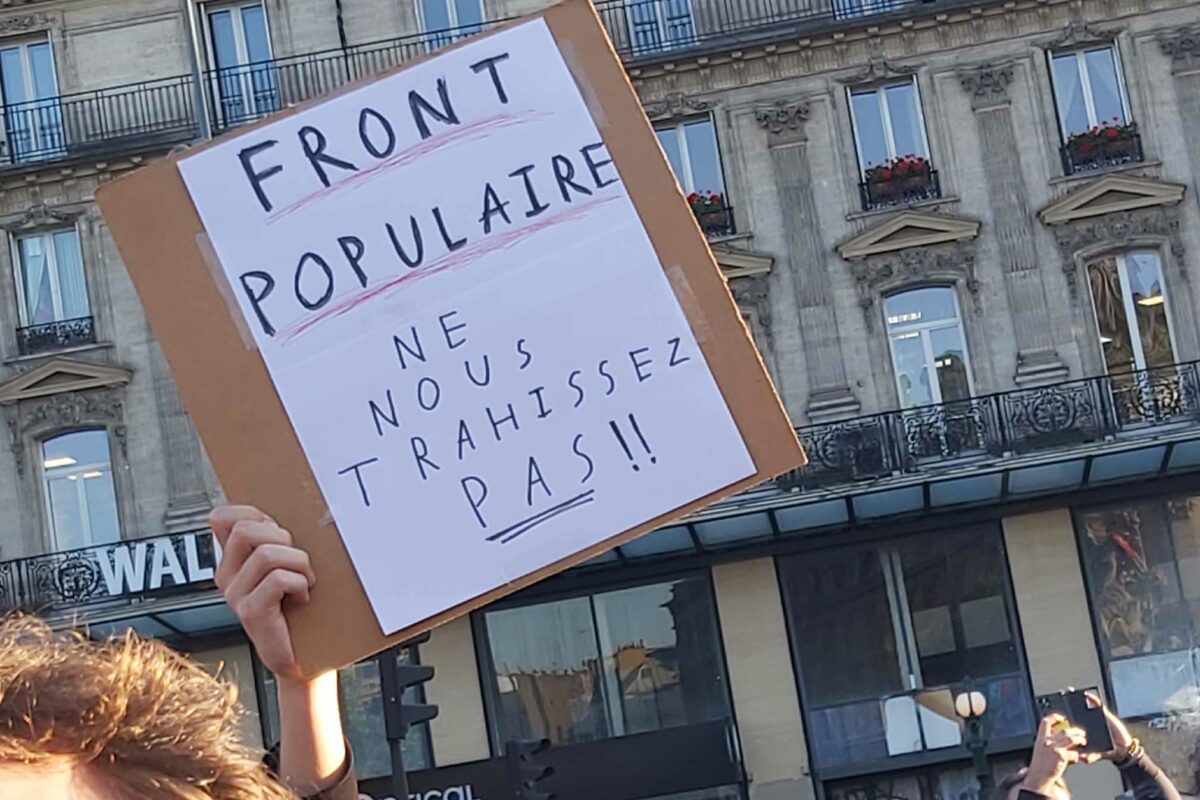We were expecting far right gains at the European elections, but we were not expecting this. Within a few hours of the election results being announced, 2 governments fell. This means that in the coming month, we will see 3 general elections in Europe where in different ways the far right will pose a serious challenge.
In France, Rassemblement National (RN) got 31.4% of the vote, up 8% from the last election and over twice as much as President Emmanuel Macron’s Renaissance party. Another fascist party, La France fière, got a further 5%. In response, Macron called a snap election. This is a big gamble, which may end up with RN’s Jordan Bardella as Macron’s prime minister.
In Belgium, prime minister Alexander De Croo also resigned after his Open Flemish Liberals haemmoraged support. The main winners of the new election are likely to be the parties of the centre, but the fascist Vlaams Belang, who received 14.5% of the total vote (21.8% in Flanders) are waiting in the wings.
The third country with a coming election, Britain, did not participate in the EU elections. Labour’s Kier Starmer is expecting a landslide, but in the most recent poll, Nigel Farage’s Reform Party is lying ahead of the failing Conservatives. When Starmer disappoints the limited expectations in him, as he surely will, Farage will be waiting to take advantage.
Although Farage is a former stockbroker and sympathiser, if not member, of the Nazi National Front, the Reform Party is aware that Labour no longer represents working people, and is attempting to present itself as a people’s party. In an attempt to win over working class voters, party chairman Richard Tice recently tweeted: “Reform is the real party of workers who’ve been abandoned by ‘cafe latte’ Labour.”
Far right parties did well in other countries. In Austria, the FPÖ topped the polls with over 25% of the vote. In Italy, president Giorgia Meloni’s Fratelli d’Italia got nearly 29%, almost 5 times as much as in the previous EU elections. In the Netherlands, Geert WIlders’s PVV got 17.7%. In Hungary and Poland, the Fidesz and PiS votes went down – but they still got nearly 50% and 36.2% respectively.
In Spain, where the far right is less established, VOX got nearly 10%. Even in Ireland, far right parties made gains, particularly in the local elections which were taking place at the same time as the EU elections. In Ballymun-Finglas, they got 20% of the first preference vote. For the first time, Ireland now has local councillors who are, essentially, Nazis.
Far right and fascist parties are now part of 8 governments within the EU. If RN win the coming French elections, this could be 9.
A Vicious Circle
After the election results were announced, a friend posted a meme showing a cycle of political changes throughout Europe. It starts with an uninspiring centrist refusing to tackle the underlying social problems that led to the far right (Germany, USA). We move quickly on to a stagnating living standard creating a fertile ground for fascism. The far right win the elections (Netherlands, France, Italy).
Next step is the right driving the economy off a cliff, lowering the standards of public life and generally making everything objectively worse (UK). As a result, an uninspiring centrist wins the election with a promise of change (Poland). This results in an uninspiring centrist refusing to tackle the underlying social problems that led to the far right…
This meme is, if anything, too optimistic. At the moment, Europe is not in the middle of a vicious circle but a downward spiral. At the end of each cycle, the far right emerges stronger, the centre left has fewer answers and the far Left is weaker than last time round. We look back in regret at the optimistic SYRIZA/Podemos/Corbyn (delete as appropriate) years.
This does not mean that defeat is inevitable. Resistance is possible – necessary, even. But history shows that repeatedly making concessions to the fascists has only made them stronger. As the crisis of neoliberal capitalism gets deeper, the centre is not holding and people are seeking increasingly radical opportunities. This is both a challenge and an opportunity for the Left.
Germany
In Germany, the AfD gained 16%, despite the pre-election scandals of the re-migration conference, AfD lead candidate Maximilian Krah telling an Italian newspaper that members of the SS were “not necessarily criminals”, and the video from Sylt of young Germans chanting the banned Nazi slogan “Foreigners out – Germany for the Germans” while making Nazi salutes.
While some of the people in Sylt may well have voted for the neoliberal FDP, such normalisation of Nazi Germany will ultimately benefit the AfD, which has become much more than just a “party which has Nazis in it”. So many of its representatives are prepared to celebrate Hitler and the Third Reich that it’s time to come out and call the AfD a Nazi party, just like the Rassemblement National, just like the Fratelli d’Italia.
The AfD was the most popular party in Eastern Germany, with around 30% of the vote. 18.5% of trade unionists voted for the AfD – more than the party’s vote of 15.9%. More trade unionists voted for the AfD than for the SPD – only the CDU polled better amongst organised workers. Among young people aged 16-24, the AfD vote trebled from around 5% to over 15%.
Having said this, things could have been even worse. It is only a few months ago that the AfD was polling at 23%. It is likely that recent mobilisations have contributed to reducing their vote, but it is still worryingly high, particularly as there will be regional elections in 3 of the 5 Eastern German states in September. The AfD has a chance of winning them all.
Response 1: try and steal the fascist’s clothes
As a reaction to the Fascist threat, the Left is suggesting a number of different responses, not all of which are equally useful. In Germany, the Bündnis Sahra Wagenknecht won a lot of votes – more than twice as many as die Linke – but refused to challenge the AfD’s racism. At a post-election television interview, where an SPD representative called the AfD Nazis, it was Wagenknecht who pleaded that while there may be a few rotten apples, it was wrong to malign the whole party.
Incidentally, the reaction of the Linke leader, former Trotskyist Janine Wissler, shows the extent to which that party has degenerated. Instead of attacking Wagenknecht’s openness to the far right, Wissler preferred to criticise her for leaving the parliament chamber just before it was to be addressed by Ukraine’s neoliberal president Volodymyr Zelenskyy.
Meanwhile in the UK, George Galloway talks a good fight on Palestine, while dividing his voters by blaming migrants and other minorities. While Galloway claims to be fighting “for the workers, not the workers”, Wagenknecht attacks “scurrilous minorities”. They both claim to be speaking on behalf of the working class, while being oblivious to the fact that the working class is made up of people with many ethnic backgrounds and sexual preferences.
Both Galloway and Wagenknecht help bring the Nazis into the mainstream, especially as both call for more immigration controls. Even if this does might win short term electoral success, it ends up legitimising the far right’s antisocial agenda. And, as Le Pen’s father Jean Marie was keen to say, people ultimately prefer the original to the copy.
Response 2: New Popular Front
In France, all left of centre parties, from the social democratic PS to the revolutionary left NPA have joined what has been (slightly inaccurately) called a “new Popular Front” – an electoral alliance within which each party stands its own candidates and issues its own propaganda but does not stand against other left parties. This alliance has also been backed by the anti-globalisation organisation ATTAC, and the big trade unionists, who organised last week-end’s demonstrations against the far right attended by hundreds of thousands.
The “new Popular Front” has been criticised by a minority of Leftists inside and outside France. One criticism counterposes an electoral strategy with one on the streets. A Left election campaign, so the argument goes, will demobilise any street actions. But you can’t have it both ways. Even the opponents of the new Popular Front argue that a RN victory will demoralise anyone who wants to fight. This acknowledges that elections are not a distraction. A Left victory would have a positive effect which gives people the confidence to fight.
If done correctly, an election campaign which highlights the fascist nature of RN and proposes a socialist alternative to austerity and racism could be a central part of the mobilisations against the RN and involve far wider forces than are currently active, both at the ballot boxes and on the streets.
In the EU elections, Jean-Luc Melenchon’s La France Insoumise (LFI) campaigned under the slogan “the strength to change everything” for a package of reforms, including a rise in the minimum wage, a return to retirement at 60, a price freeze on basic foodstuffs and other necessities, and a ban on arms sales to Israel.
This was highly popular, particularly in the banlieues where many working class migrants live. In the multi-ethnic working class suburbs around Paris, LFI often achieved votes of over 30%, winning 58% in La Courneuve, 51% in Saint Denis, and 53% in Bobigny.
Another reason why I believe that an electoral front is tactically correct at this juncture is the peculiarities of the French electoral system. The first round of votes in each constituency is followed by a run off between the most successful two parties (plus anyone else who gains more than 12.5% of the vote).
This has meant that in the last two presidential run offs, French voters have been offered the unsavoury choice of either Macron or Le Pen. The next election will determine MPs in each constituency – Macron is staying for now – but the same principle applies. A recent poll suggested that the RN would gain 31% in the first round, the left bloc 28% and Macron’s Renaissance party 18%.
A left wing electoral bloc will not bring socialism, but it would produce an election in which the main debate would be about more than choosing between neoliberal and fascist forms of austerity. Elections are not a distraction from class struggle, but – with the right campaign – an important part of it.
If the RN did very well in this election, their leader Jordan Bardella could end up Prime Minister. This would give him very important executive powers and would boost his party immensely. He must be stopped. According to most projections, if the elections went ahead without an electoral alliance between different Left forces, the far right RN would get 70 to 80 more seats than if there were such an alliance.
Response 3: Street mobilisations
While I agree with the New Popular Front in the French context, if we want to remove the Nazi threat, it is insufficient to limit the fight to the electoral arena. Especially in Germany, with the coming elections in the East, we need to physically oppose the Nazis.
The next opportunity is the AfD national conference in Essen at the end of June. Essen council already cancelled the conference because of pro-Nazi statements by AfD representative. The AfD has successfully challenged this ban in the courts, but it has still made people aware that the conference can be stopped – on the streets if not in the courts.
The AfD conference will be met with an expected 50,000+ demonstrators, but this will be more than a symbolic demonstration. The plan is to put our bodies between the AfD delegates and the conference hall and to stop the conference taking place. The fact that local police will be otherwise engaged in a nearby European Championship football match makes this more possible.
The demonstrations to block the AfD are in the spirit of Dresden Nazifrei, which prevented the largest Nazi demonstration in Europe, which used to take place on the anniversary of the Dresden bombings. A broad but radical alliance – including everyone from the Black Bloc to SPD president of the Bundestag Wolfgang Thierse – physically prevented the Nazis from marching.
If we successfully stop the AfD conference, we will send a signal throughout Europe that the rise of the far right is not inevitable. This requires a dual strategy. Firstly, by uniting with anyone who can unite to stop the AfD. But within this broad alliance, we must offer socialist politics of hope instead of the despair on which the far right thrives. Only then can we break the AfD’s fascist core from the voters who currently vote right because the establishment parties have failed them.




